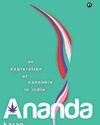
Fiction can, in our imagination, create a stronger impress of actuality than tangible reality itself. And, consequently, we may find it difficult to tell one from the other. Such is the case of the Marabar Caves. It’s obvious from the very first sentence that the Marabar Caves were the focal point of A Passage to India, the novel on the muddle of race relations that E. M. Forster had written exactly one hundred years ago. They resonate through the narrative, the conversations and thought processes of its characters like the echoes that rebound within the caves’ dark, cavernous interiors. It is an acoustic reality that booms through the novel.
It wasn’t until months after my visit to Bihar last December that I discovered that even friends who taught English literature in universities had no idea that the impulse behind those fictional Marabar Caves came from a network of caves known as Barabar in what once were the badlands of the Makhdumpur region in the state’s Jehanabad district—a territory where banditry and Naxalite insurgents had a free run. I too didn’t know the Barabar Caves even existed.
It was close to Christmas, and so, expecting the dreaded Bihar cold wave, we—my young nephew Somnath was my travelling companion—had armed ourselves with the heaviest jackets and thermals. It turned out to be quite otherwise, however, and I was forced to peel off all my coverings. Bihar upended all our expectations. The rough-hewn, untrammeled beauty of nature—low-lying hills leaning against the horizon, miles of rolling grassland with palm trees standing sentinel, and acres of cultivated land—adequately compensated for the occasional rough patches on the roadways. Boulders both small and gigantic were strewn all along.
Diese Geschichte stammt aus der October 2024-Ausgabe von Reader's Digest India.
Starten Sie Ihre 7-tägige kostenlose Testversion von Magzter GOLD, um auf Tausende kuratierte Premium-Storys sowie über 8.000 Zeitschriften und Zeitungen zuzugreifen.
Bereits Abonnent ? Anmelden
Diese Geschichte stammt aus der October 2024-Ausgabe von Reader's Digest India.
Starten Sie Ihre 7-tägige kostenlose Testversion von Magzter GOLD, um auf Tausende kuratierte Premium-Storys sowie über 8.000 Zeitschriften und Zeitungen zuzugreifen.
Bereits Abonnent? Anmelden

ME & MY SHELF
Siddharth Kapila is a lawyer turned writer whose writing has focussed on issues surrounding Hinduism. His debut book, Tripping Down the Ganga: A Son's Exploration of Faith (Speaking Tiger) traces his seven-year-long journey along India's holiest river and his explorations into the nature of faith among believers and skeptics alike.

EMBEDDED FROM NPR
For all its flaws and shortcomings, some of which have come under the spotlight in recent years, NPR makes some of the best hardcore journalistic podcasts ever.

ANURAG MINUS VERMA PODCAST
Interview podcasts live and die not just on the strengths of the interviewer but also the range of participating guests.

WE'RE NOT KIDDING WITH MEHDI & FRIENDS
Since his exit from MSNBC, star anchor and journalist Mehdi Hasan has gone on to found Zeteo, an all-new media startup focussing on both news and analysis.

Ananda: An Exploration of Cannabis in India by Karan Madhok (Aleph)
Karan Madhok's Ananda is a lively, three-dimensional exploration of India's past and present relationship with cannabis.

I'll Have it Here: Poems by Jeet Thayil, (Fourth Estate)
For over three decades now, Jeet Thayil has been one of India's pre-eminent Englishlanguage poets.

Orbital by Samantha Harvey (Penguin Random House India)
Samantha Harvey became the latest winner of the Booker Prize last month for Orbital, a short, sharp shock of a novel about a group of astronauts aboard the International Space Station for a long-term mission.

She Defied All the Odds
When doctors told the McCoombes that spina bifida would severely limit their daughter's life, they refused to listen. So did the little girl

DO YOU DARE?
Two Danish businesswomen want us to start eating insects. It's good for the environment, but can consumers get over the yuck factor?

Searching for Santa Claus
Santa lives at the North Pole, right? Don't say that to the people of Rovaniemi in northern Finland